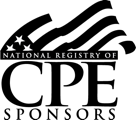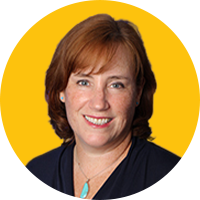Health Care Industry Library
Become an expert and trusted advisor in the rapidly changing industry of Health Care. Becker’s new Health Care Library is the perfect solution to get you up-to-speed quickly on the complexities in tax and accounting – while earning 15 CPE credits. Learn about large health care and hospital systems, including key industry terms, trends and challenges. With these courses and our simple approach, you will learn what it means for an entity to be tax exempt, how to break down the complexities of revenue recognition, and examine examples of health system financial statements and more. You will also dive deeply into topics including COVID-19 economic and operational impacts, health care reimbursement systems, cost allocation methodologies, accounting for contingencies, allowances, and settlements, and threats to exempt status for not-for-profit hospitals. Give yourself tools to improve business decisions and mitigate risk by ensuring they become experts in the health care industry.
These healthcare accounting courses are for internal accountants looking to deepen the industry expertise and value they bring; consultants wanting to broaden their field of expertise for clients; auditors aiming to hone their healthcare specialization for those they serve. This industry library is worth exploring if you're interested in earning CPE in healthcare accounting topics.
These healthcare accounting courses are for internal accountants looking to deepen the industry expertise and value they bring; consultants wanting to broaden their field of expertise for clients; auditors aiming to hone their healthcare specialization for those they serve. This industry library is worth exploring if you're interested in earning CPE in healthcare accounting topics.
These healthcare accounting courses are for internal accountants looking to deepen the industry expertise and value they bring; consultants wanting to broaden their field of expertise for clients; auditors aiming to hone their healthcare specialization for those they serve. This industry library is worth exploring if you're interested in earning CPE in healthcare accounting topics.
- This 11-course, 15-credit CPE Health Care Industry Library takes you on an easy-to-follow journey with all the important healthcare accounting topics in one place. Once the foundation is set, you will then deep dive into specific health care issues.
- Our instructors don't just teach the industry, they live it. Bringing years of healthcare accounting experience to the table, they know exactly what information is most relevant — and most valuable — to you.
- Get up-to-speed quickly and efficiently in a way that fits both your lifestyle and learning style. This CPE Health Care Industry Library includes 24/7 on-demand access and includes multiple 1–2 credit hour courses.
- This 11-course, 15-credit CPE Health Care Industry Library takes you on an easy-to-follow journey with all the important healthcare accounting topics in one place. Once the foundation is set, you will then deep dive into specific health care issues.
- Our instructors don't just teach the industry, they live it. Bringing years of healthcare accounting experience to the table, they know exactly what information is most relevant — and most valuable — to you.
- Get up-to-speed quickly and efficiently in a way that fits both your lifestyle and learning style. This CPE Health Care Industry Library includes 24/7 on-demand access and includes multiple 1–2 credit hour courses.
- This 11-course, 15-credit CPE Health Care Industry Library takes you on an easy-to-follow journey with all the important healthcare accounting topics in one place. Once the foundation is set, you will then deep dive into specific health care issues.
- Our instructors don't just teach the industry, they live it. Bringing years of healthcare accounting experience to the table, they know exactly what information is most relevant — and most valuable — to you.
- Get up-to-speed quickly and efficiently in a way that fits both your lifestyle and learning style. This CPE Health Care Industry Library includes 24/7 on-demand access and includes multiple 1–2 credit hour courses.
Former Director of Finance, NYS Department of Health
James has 30+ years of experience in health care financial management, served as CFO of a multi-facility health care group, and is a retired CPA.
Former Director of Finance, NYS Department of Health
James has 30+ years of experience in health care financial management, served as CFO of a multi-facility health care group, and is a retired CPA.
Former Director of Finance, NYS Department of Health
James has 30+ years of experience in health care financial management, served as CFO of a multi-facility health care group, and is a retired CPA.
Appeals Officer, Internal Revenue Service
J.D., LL.M, CPA
Mary’s 26-year career has been focused in taxation from practice to education. Mary has 15+ years of experience in public accounting, including eight in the Big 4.
Appeals Officer, Internal Revenue Service
J.D., LL.M, CPA
Mary’s 26-year career has been focused in taxation from practice to education. Mary has 15+ years of experience in public accounting, including eight in the Big 4.
Appeals Officer, Internal Revenue Service
J.D., LL.M, CPA
Mary’s 26-year career has been focused in taxation from practice to education. Mary has 15+ years of experience in public accounting, including eight in the Big 4.
National Editor in Chief, Becker
CPE, CPA, MBA, JD, CGMA
Tim is a managing partner at Gearty & McIntyre CPA LLP and has 40+ years of experience practicing law and preparing tax returns with health care clients.
National Editor in Chief, Becker
CPE, CPA, MBA, JD, CGMA
Tim is a managing partner at Gearty & McIntyre CPA LLP and has 40+ years of experience practicing law and preparing tax returns with health care clients.
National Editor in Chief, Becker
CPE, CPA, MBA, JD, CGMA
Tim is a managing partner at Gearty & McIntyre CPA LLP and has 40+ years of experience practicing law and preparing tax returns with health care clients.
Understanding the landscape of the healthcare industry is crucial for professionals working within it. This course is an overview of the healthcare environment and organizational structure, including regulations, current trends in physician services, nursing care facilities and health insurers, and notable key healthcare accounting topics.
Instructor: James Wyzkowski
CPE Credits: 2
Understanding the landscape of the healthcare industry is crucial for professionals working within it. This course is an overview of the healthcare environment and organizational structure, including regulations, current trends in physician services, nursing care facilities and health insurers, and notable key healthcare accounting topics.
Instructor: James Wyzkowski
CPE Credits: 2
Understanding the landscape of the healthcare industry is crucial for professionals working within it. This course is an overview of the healthcare environment and organizational structure, including regulations, current trends in physician services, nursing care facilities and health insurers, and notable key healthcare accounting topics.
Instructor: James Wyzkowski
CPE Credits: 2
58% of hospitals in the United States are tax-exempt entities. As such, it is important for practitioners to understand what it means for an entity to be tax exempt. This healthcare accounting course covers the lifecycle and requirements of tax-exempt organizations, types of tax-exempt organizations, differences between public charities and private foundations, and types of prohibited activities for tax-exempt organizations.
Instructor: Tim Gearty
CPE Credits: 1.5
58% of hospitals in the United States are tax-exempt entities. As such, it is important for practitioners to understand what it means for an entity to be tax exempt. This healthcare accounting course covers the lifecycle and requirements of tax-exempt organizations, types of tax-exempt organizations, differences between public charities and private foundations, and types of prohibited activities for tax-exempt organizations.
Instructor: Tim Gearty
CPE Credits: 1.5
58% of hospitals in the United States are tax-exempt entities. As such, it is important for practitioners to understand what it means for an entity to be tax exempt. This healthcare accounting course covers the lifecycle and requirements of tax-exempt organizations, types of tax-exempt organizations, differences between public charities and private foundations, and types of prohibited activities for tax-exempt organizations.
Instructor: Tim Gearty
CPE Credits: 1.5
This healthcare accounting course will break down the complexities of revenue recognition by examining each component of the revenue recognition process as it applies to unique health care examples. Specific attention will be given to performance obligations, collectability from uninsured patients or patients with copayments and deductibles, third-party settlements, risk sharing arrangements and financial statement disclosures.
Instructor: James Wyzkowski
CPE Credits: 1.5
This healthcare accounting course will break down the complexities of revenue recognition by examining each component of the revenue recognition process as it applies to unique health care examples. Specific attention will be given to performance obligations, collectability from uninsured patients or patients with copayments and deductibles, third-party settlements, risk sharing arrangements and financial statement disclosures.
Instructor: James Wyzkowski
CPE Credits: 1.5
This healthcare accounting course will break down the complexities of revenue recognition by examining each component of the revenue recognition process as it applies to unique health care examples. Specific attention will be given to performance obligations, collectability from uninsured patients or patients with copayments and deductibles, third-party settlements, risk sharing arrangements and financial statement disclosures.
Instructor: James Wyzkowski
CPE Credits: 1.5
Analyzing financial statements is centered on the interrelationships of financial data and the ability to use this data to form conclusions. Focusing on not-for-profit (NFP) provider entities, this healthcare accounting course examines examples of health system financial statements, financial analysis tools used to evaluate the financial performance of the entity and nonfinancial utilization measures commonly used in the industry.
Instructor: James Wyzkowski
CPE Credits: 1.0
Analyzing financial statements is centered on the interrelationships of financial data and the ability to use this data to form conclusions. Focusing on not-for-profit (NFP) provider entities, this healthcare accounting course examines examples of health system financial statements, financial analysis tools used to evaluate the financial performance of the entity and nonfinancial utilization measures commonly used in the industry.
Instructor: James Wyzkowski
CPE Credits: 1.0
Analyzing financial statements is centered on the interrelationships of financial data and the ability to use this data to form conclusions. Focusing on not-for-profit (NFP) provider entities, this healthcare accounting course examines examples of health system financial statements, financial analysis tools used to evaluate the financial performance of the entity and nonfinancial utilization measures commonly used in the industry.
Instructor: James Wyzkowski
CPE Credits: 1.0
The health care industry is complex and involves many uncertainties in accounting for contingencies, allowances, and settlements. This healthcare accounting course discusses accounting for contingencies reported under FASB Topic 954, settlements under third-party obligations and ASC 606 considerations, determining collectability and allowances for uncollectible accounts, and industry-specific disclosures that should be considered.
Instructor: James Wyzkowski
CPE Credits: 1.0
The health care industry is complex and involves many uncertainties in accounting for contingencies, allowances, and settlements. This healthcare accounting course discusses accounting for contingencies reported under FASB Topic 954, settlements under third-party obligations and ASC 606 considerations, determining collectability and allowances for uncollectible accounts, and industry-specific disclosures that should be considered.
Instructor: James Wyzkowski
CPE Credits: 1.0
The health care industry is complex and involves many uncertainties in accounting for contingencies, allowances, and settlements. This healthcare accounting course discusses accounting for contingencies reported under FASB Topic 954, settlements under third-party obligations and ASC 606 considerations, determining collectability and allowances for uncollectible accounts, and industry-specific disclosures that should be considered.
Instructor: James Wyzkowski
CPE Credits: 1.0
This healthcare accounting course coordinates with the Understanding Not-for-Profit Hospitals’ Tax Issues course, focusing on federal income tax compliance. The course is a deep dive into IRS Form 990 (Return of Organization Exempt from Income Tax) and covers the requirements for filing a Form 990, focusing on items of interest to hospitals. It contains an actual example of a Form 990 filed by a hospital. The course concludes with a discussion of Form 990 best practices.
Instructor: Tim Gearty
CPE Credits: 2.5
This healthcare accounting course coordinates with the Understanding Not-for-Profit Hospitals’ Tax Issues course, focusing on federal income tax compliance. The course is a deep dive into IRS Form 990 (Return of Organization Exempt from Income Tax) and covers the requirements for filing a Form 990, focusing on items of interest to hospitals. It contains an actual example of a Form 990 filed by a hospital. The course concludes with a discussion of Form 990 best practices.
Instructor: Tim Gearty
CPE Credits: 2.5
This healthcare accounting course coordinates with the Understanding Not-for-Profit Hospitals’ Tax Issues course, focusing on federal income tax compliance. The course is a deep dive into IRS Form 990 (Return of Organization Exempt from Income Tax) and covers the requirements for filing a Form 990, focusing on items of interest to hospitals. It contains an actual example of a Form 990 filed by a hospital. The course concludes with a discussion of Form 990 best practices.
Instructor: Tim Gearty
CPE Credits: 2.5
COVID-19 has undoubtedly altered the world we live in — especially the health care industry. This healthcare accounting course explores how the pandemic impacted the industry economically and operationally, including the regulatory impact of the CARES Act and more. Audit and accounting risks and watchouts, from fraud to non-compliance, are also highlighted. The course concludes with a look at post-pandemic trends that will likely continue into the future.
Instructor: James Wyzkowski
CPE Credits: 1.0
COVID-19 has undoubtedly altered the world we live in — especially the health care industry. This healthcare accounting course explores how the pandemic impacted the industry economically and operationally, including the regulatory impact of the CARES Act and more. Audit and accounting risks and watchouts, from fraud to non-compliance, are also highlighted. The course concludes with a look at post-pandemic trends that will likely continue into the future.
Instructor: James Wyzkowski
CPE Credits: 1.0
COVID-19 has undoubtedly altered the world we live in — especially the health care industry. This healthcare accounting course explores how the pandemic impacted the industry economically and operationally, including the regulatory impact of the CARES Act and more. Audit and accounting risks and watchouts, from fraud to non-compliance, are also highlighted. The course concludes with a look at post-pandemic trends that will likely continue into the future.
Instructor: James Wyzkowski
CPE Credits: 1.0
Health care providers are reimbursed for their care through a myriad of complicated mechanisms. This healthcare accounting course looks at traditional and alternative payment models commonly seen in health care. Topics covered include various health care reimbursement systems, population health management, bundled payment arrangements, accountable care organizations (ACOs), value-based payments, and a look specifically into medical home models.
Instructor: James Wyzkowski
CPE Credits: 1.0
Health care providers are reimbursed for their care through a myriad of complicated mechanisms. This healthcare accounting course looks at traditional and alternative payment models commonly seen in health care. Topics covered include various health care reimbursement systems, population health management, bundled payment arrangements, accountable care organizations (ACOs), value-based payments, and a look specifically into medical home models.
Instructor: James Wyzkowski
CPE Credits: 1.0
Health care providers are reimbursed for their care through a myriad of complicated mechanisms. This healthcare accounting course looks at traditional and alternative payment models commonly seen in health care. Topics covered include various health care reimbursement systems, population health management, bundled payment arrangements, accountable care organizations (ACOs), value-based payments, and a look specifically into medical home models.
Instructor: James Wyzkowski
CPE Credits: 1.0
With health care entities receiving payments through a myriad of reimbursement schemes, the proper allocation of cost is necessary to both measure performance and create a proper audit trail. This healthcare accounting course focuses on cost allocation used in health care entities — specifically, identifying the elements of costs in an organization, recognizing what drives costs, and describing how cost is accumulated and driven into profit centers.
Instructor: James Wyzkowski
CPE Credits: 1.0
With health care entities receiving payments through a myriad of reimbursement schemes, the proper allocation of cost is necessary to both measure performance and create a proper audit trail. This healthcare accounting course focuses on cost allocation used in health care entities — specifically, identifying the elements of costs in an organization, recognizing what drives costs, and describing how cost is accumulated and driven into profit centers.
Instructor: James Wyzkowski
CPE Credits: 1.0
With health care entities receiving payments through a myriad of reimbursement schemes, the proper allocation of cost is necessary to both measure performance and create a proper audit trail. This healthcare accounting course focuses on cost allocation used in health care entities — specifically, identifying the elements of costs in an organization, recognizing what drives costs, and describing how cost is accumulated and driven into profit centers.
Instructor: James Wyzkowski
CPE Credits: 1.0
Not-for-profit (i.e., tax-exempt) hospitals dominate the hospital industry. Because they must provide community benefits to retain their tax-exempt status, but are in competition with for-profit hospitals, they face unique tax issues of which a practitioner should be aware. This healthcare accounting course explores some of these issues, including comparing not-for-profit and for-profit hospitals, funding issues, income tax issues (including unrelated business taxable income), payroll tax issues, and threats to exempt status for not-for-profit hospitals.
Instructor: Tim Gearty
CPE Credits: 1.5
Not-for-profit (i.e., tax-exempt) hospitals dominate the hospital industry. Because they must provide community benefits to retain their tax-exempt status, but are in competition with for-profit hospitals, they face unique tax issues of which a practitioner should be aware. This healthcare accounting course explores some of these issues, including comparing not-for-profit and for-profit hospitals, funding issues, income tax issues (including unrelated business taxable income), payroll tax issues, and threats to exempt status for not-for-profit hospitals.
Instructor: Tim Gearty
CPE Credits: 1.5
Not-for-profit (i.e., tax-exempt) hospitals dominate the hospital industry. Because they must provide community benefits to retain their tax-exempt status, but are in competition with for-profit hospitals, they face unique tax issues of which a practitioner should be aware. This healthcare accounting course explores some of these issues, including comparing not-for-profit and for-profit hospitals, funding issues, income tax issues (including unrelated business taxable income), payroll tax issues, and threats to exempt status for not-for-profit hospitals.
Instructor: Tim Gearty
CPE Credits: 1.5
Although most hospitals are not-for-profit, 24% of hospitals are for-pro t taxable entities and even not-for profit hospitals are not exempt from all taxes. This course explores selected issues related to taxes paid by hospitals. The course begins with a discussion of the continuing controversy regarding whether hospitals should be allowed tax-exempt status and provides “cautionary tales” of situations in which exemption was revoked, resulting in taxation. The course then discusses some newer federal income tax rules impacting for-profit and not-for-profit hospitals. The course concludes with a comprehensive discussion of the Medicaid Provider excise taxes imposed by the states on all hospitals.
Instructor: Mary Walsh
CPE Credits: 1
Although most hospitals are not-for-profit, 24% of hospitals are for-pro t taxable entities and even not-for profit hospitals are not exempt from all taxes. This course explores selected issues related to taxes paid by hospitals. The course begins with a discussion of the continuing controversy regarding whether hospitals should be allowed tax-exempt status and provides “cautionary tales” of situations in which exemption was revoked, resulting in taxation. The course then discusses some newer federal income tax rules impacting for-profit and not-for-profit hospitals. The course concludes with a comprehensive discussion of the Medicaid Provider excise taxes imposed by the states on all hospitals.
Instructor: Mary Walsh
CPE Credits: 1
Although most hospitals are not-for-profit, 24% of hospitals are for-pro t taxable entities and even not-for profit hospitals are not exempt from all taxes. This course explores selected issues related to taxes paid by hospitals. The course begins with a discussion of the continuing controversy regarding whether hospitals should be allowed tax-exempt status and provides “cautionary tales” of situations in which exemption was revoked, resulting in taxation. The course then discusses some newer federal income tax rules impacting for-profit and not-for-profit hospitals. The course concludes with a comprehensive discussion of the Medicaid Provider excise taxes imposed by the states on all hospitals.
Instructor: Mary Walsh
CPE Credits: 1
- 60+ years supporting accounting professionals looking to continue their education
- Partner of 2,900+ top accounting firms, corporations, alliances and government agencies
- 96% of Becker customers say all their CPE needs are met
- 60+ years supporting accounting professionals looking to continue their education
- Partner of 2,900+ top accounting firms, corporations, alliances and government agencies
- 96% of Becker customers say all their CPE needs are met
- 60+ years supporting accounting professionals looking to continue their education
- Partner of 2,900+ top accounting firms, corporations, alliances and government agencies
- 96% of Becker customers say all their CPE needs are met
You’re in the right place. Discover the impact you can have in other complex, rapidly changing industries. Each Library includes everything you need to master the skills your clients or business need most.
You’re in the right place. Discover the impact you can have in other complex, rapidly changing industries. Each Library includes everything you need to master the skills your clients or business need most.
You’re in the right place. Discover the impact you can have in other complex, rapidly changing industries. Each Library includes everything you need to master the skills your clients or business need most.

A Becker Professional Education is registered with the National Association of State Boards of Accountancy (NASBA) as a sponsor of continuing professional education on the National Registry of CPE Sponsors. State boards of accountancy have final authority on the acceptance of individual courses for CPE credit. Complaints regarding registered sponsors may be submitted to the National Registry of CPE Sponsors through its website: www.nasbaregistry.org
Becker Professional Education Sponsor I.D. Numbers NASBA: 107294, New York: 002087, New Jersey: 20CE00226700, Texas: 009580, Ohio: CPE.186, Illinois 158.002405, Pennsylvania: PX177823






